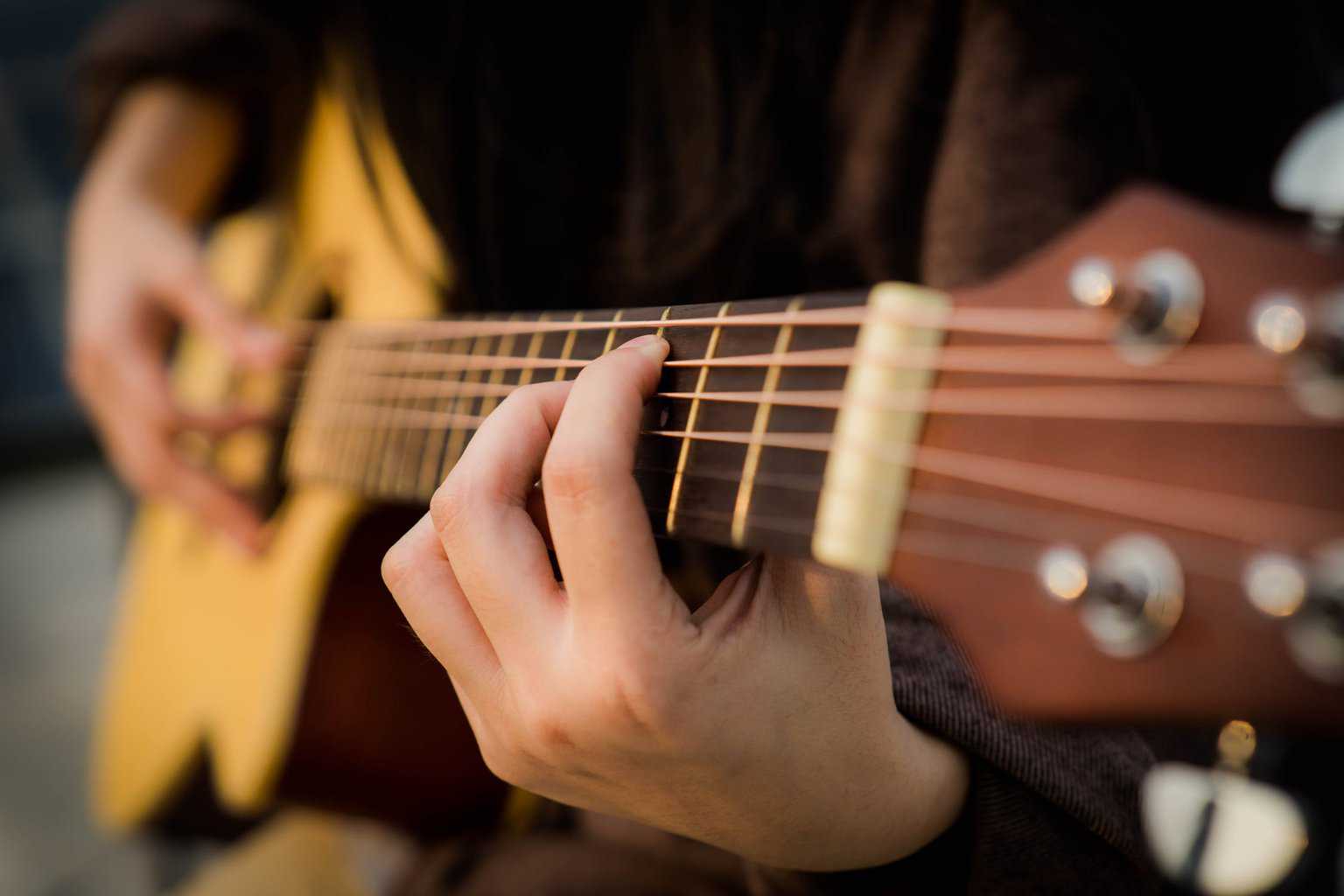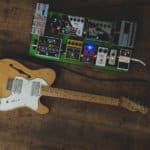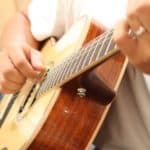Have you ever felt that your guitar is making unpleasant sounds when playing? You may think that sounds are because you are not good enough but it has nothing to do with that.
Although is more usual in acoustic pieces it also affects electric guitars. At first sight, the scratchy noises are really annoying when you play chords.
Of course, you want to avoid that but don’t worry, that frustrating feeling is really common among guitar players.
At first, it might be difficult but let me tell you that there exist some ways to reduce string noise.
The best way to get rid of annoying scratchy sounds when changing chords on an acoustic guitar is learning how to properly release the pressure from the frets, and move your fingers to the next chord shape, without sliding them through the strings. You should start by practicing this slowly with easy chords.
Although there are some kinds of strings that could help you reduce this noise, the best way around, in my opinion, would be to work on your technique.
Through this article, I will try to give you the reasons why this happens and I will explain to you how to eliminate uncomfortable sounds with different methods.
What produces that slide noise when changing chords?
In general terms, this unwanted sound appears when the player doesn’t slide in a proper way.
Perhaps is because you are pressing down while sliding.
If you press so hard the string, it may stick to your fingers, producing those undesired scratchy noises.
Moreover, if this happens when you lift your fingers up, you will get a pull-off noise.
How to prevent unwanted strings from ringing
It is really a headache when an unwanted string keeps ringing.
However, let me tell you that there are some techniques you could apply to prevent that and have strings under control.
The most common is to mute unused strings with your fretting hand.
What you can do is lift the string off the fret but not completely.
You will place your finger in the string the same way you do it when producing harmonics.
In that way, your finger will keep the string dampened.
At first, could be difficult but through practice, you can master this method quickly. What is more, is really helpful to mute arpeggios.
On the other side, we have the playing hand which is also useful for muting strings.
This technique will help you a lot to mute lower strings, you need to place the part of your hand where the pinky is.
The latter would be better for those who prefer using a pick to play.
For the ones who play fingerstyle, you can use your thumb, especially the part between the first knuckle and the wrist.
In addition, you can take profit from your unused fingers. You have to leave them resting on the strings you don’t want to ring out.
How to prevent that scratchy/slide sound when changing chords on acoustic
The scratchy noise that occurs when changing chords could sound a bit uncomfortable, mainly when playing an acoustic guitar.
But don’t worry, there are some solutions to get rid of this unpleasant noise.
What you can do to prevent the slide sound is release the pressure of your left hand when sliding between chords.
When you change into a new chord you may do an unintentional slide that fits perfectly but sometimes it may be a scratchy disgusting noise.
Another thing you can try is getting coated strings being them strings without a wrapped wire, just the core wire.
By using these strings, you can slide without producing any strange sound.
However, if you only get wound strings, you will be able to reduce the scratchies by practicing your fretting hand lifting.
In the beginning, it could be hard but wound strings need a clean lift to prevent those noises.
It is better to start from a relaxed position instead of keeping a rigid shape.
Besides, try to slow your playing down, in that way you won’t rush which is great for your accuracy.
To reduce squeaking sound you have to be aware and listen to what you are paying.
Once we said that, a good tip is to straighten your hand up before you move to a new section of the guitar.
Be careful with this because if you lift it too fast you will be producing a pull-off.
First, reduce the pressure first and then lift your finger.
Moreover, if you have to do a big slide it could sound really scratchy so try to use the pad of your finger, that will help.
In addition, it may not be the finest advice but you can grab a little bit of spit with your finger.
The spit on the tip of your finger will soften your skin temporarily and it does reduce the squeak.
But what about when you have to play a big difficult chord?
In that case, I recommend you to slightly move to the opposite way before changing chords.
If you combine the release pressure and then lift the whole fingers, you can eliminate those disgusting scratchies.
Here’s a great video commenting on some of these tips:
Why do electric guitars don’t make that much noise when changing chords?
We have said before that this is an issue that mainly affects acoustic guitars.
Although it also occurs on their electric counterparts, it is softer and less noticeable but, why does this happen?
This could be due to the almost null acoustics of the electric guitar.
The squeak happens on electric guitar as well but as the instrument does not have an acoustic resonator as the acoustic pieces have so, the scratch is less perceived.
What is more, string materials vary from acoustic to electric guitars.
Electric guitar strings are mainly made of steel, nickel, and chromium due to their magnetic composition.
On the other hand, acoustic strings are mainly composed of bronze and brass which are more acoustic resonant compared to electric guitar strings.
Will a noise gate help you reduce string noise?
You may think that what we described in this article is complex and unnecessary because of the existence of noise gates.
I’m sorry to disappoint you but a noise gate works differently and doesn’t help much.
What noise gates do is to reduce or cut hum and amp or pickup noises.
Furthermore, it won’t help because string noise comes from a different source.
To prevent or reduce unwanted string noises you should learn the proper technique of each aspect mentioned above (hand lifting, muting, et).
In the end, a noise gate wouldn’t be helpful at all.

Hello there, my name is Ramiro and I’ve been playing guitar for almost 20 years. I’m obsessed with everything gear-related and I thought it might be worth sharing it. From guitars, pedals, amps, and synths to studio gear and production tips, I hope you find what I post here useful, and I’ll try my best to keep it entertaining also.





